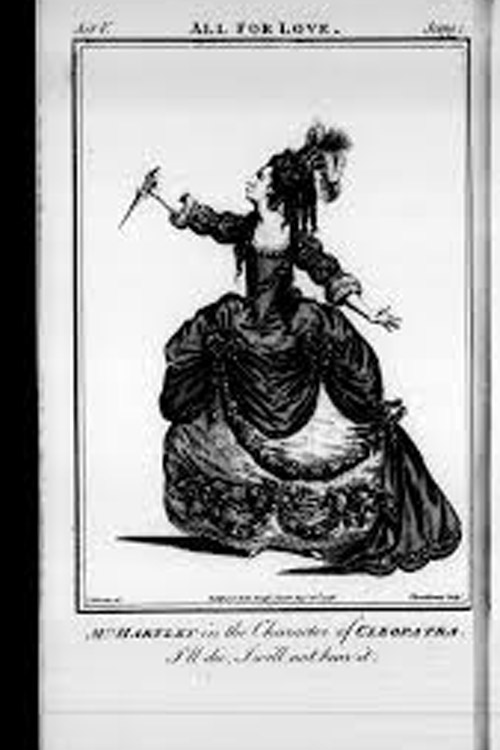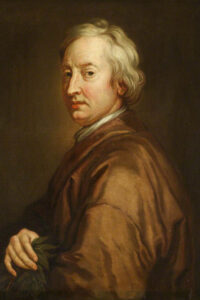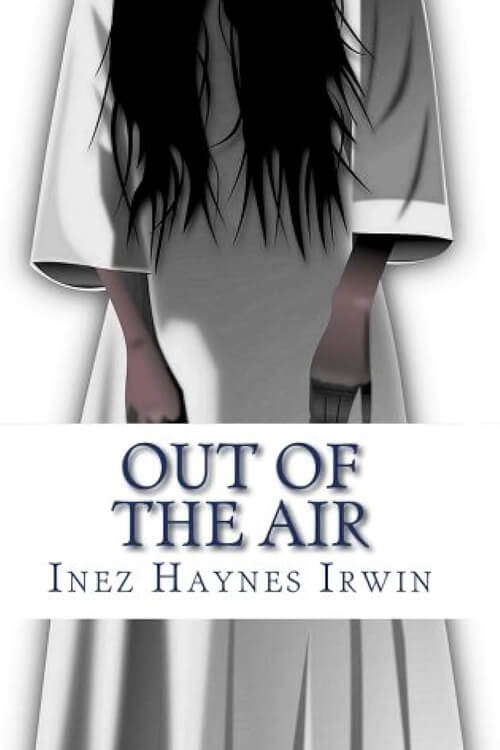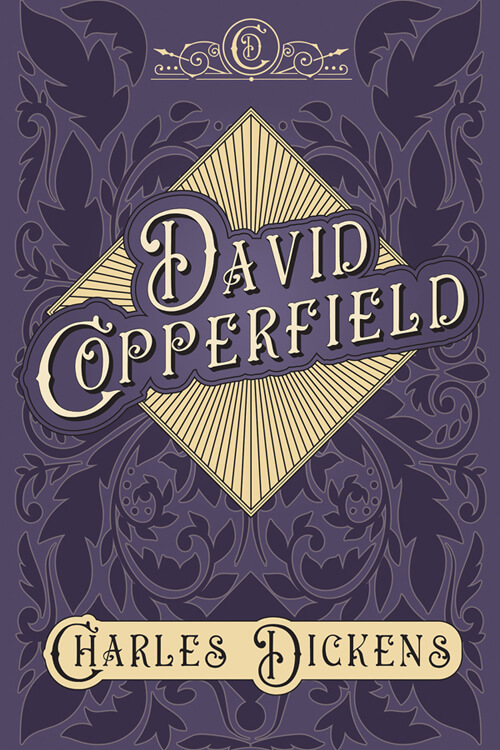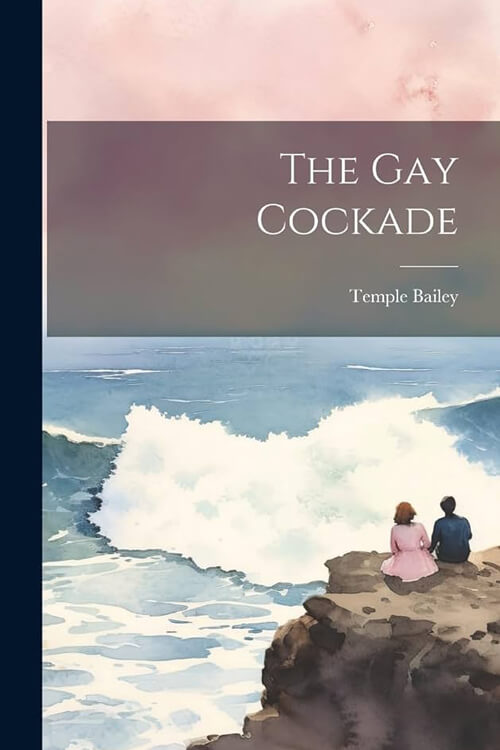
All For Loveor, The World Well Lost
Serapion describes foreboding omens (of storms, whirlwinds, and the flooding of the Nile) of Egypt’s impending doom. Alexas, Cleopatra’s eunuch, dismisses Serapion’s claims and is more concerned with Cleopatra’s relationship with Antony. He sees that Cleopatra dotes on Antony and worries that Antony will not continue seeing Cleopatra. Thus, Serapion hosts a festival to celebrate Antony’s honour.
Ventidius, a Roman general, comes to aide Antony in Alexandria. Ventidius disagrees with Antony’s relationship with Cleopatra and offers to give Antony troops if he leaves her. Although Antony is insulted by Ventidius’s opinions regarding Cleopatra (and refuses to hear anything negative about her), Antony agrees. Cleopatra mourns about her situation without Antony. Charmion, Cleopatra’s lady-in-waiting, attempts to set up a meeting between Cleopatra and Antony, but she is unsuccessful. Cleopatra thus sends Alexas to try to win back Antony using gifts (jewels including a bracelet). Alexas suggests that Cleopatra should tie the bracelet to Antony’s wrist. In the subsequent meeting between Cleopatra and Antony, Ventidius appears and tries to proclaim how Cleopatra is not Antony’s rightful partner and would betray him for her safety.
However, Cleopatra wins this argument by demonstrating in a letter that she refused Egypt and Syria from Octavius. Antony is overjoyed by Cleopatra’s decision and proclaims his love for her. Antony is returning from battle and is overwhelmed with love for Cleopatra. Ventidius comes to speak with Antony, who attempts to flee unsuccessfully. Antony does not want to return to war but doesn’t know how to stop it. He believes Dolabella can help him, and Ventidius brings Dolabella out. Dolabella, Antony’s friend, appears after Antony’s success in battle. Dolabella was banished for his love for Cleopatra, but he returns to a warm welcome from Antony. Dolabella offers a gift that will bring peace between Antony and Caesar. The gift is Octavia, Antony’s faithful wife, Caesar’s sister, and Antony’s two daughters. Octavia tells Antony the war will stop when he returns to his rightful place, by her side. Antony and Octavia reunite, and Alexas’s attempts to meddle for the sake of Cleopatra are dismissed. Cleopatra appears informed of her defeat. Alexas tells her to avoid Octavia, but Cleopatra faces her as a rival. Cleopatra and Octavia argue that it seems clear that Octavia is whom Antony rightfully belongs to, even if it is not she whom he loves most!
Read or download Book
John Dryden
John Dryden (19 August [O.S. 9 August] 1631 – 12 May [O.S. 1 May] 1700) was an English poet, literary critic, translator, and playwright who in 1668 was appointed England’s first Poet Laureate.
Biography
He is seen as dominating the literary life of Restoration England to such a point that the period came to be known in scholarly circles as the Age of Dryden. Romantic writer Sir Walter Scott called him “Glorious John”. Dryden was born in the village rectory of Aldwincle near Thrapston in Northamptonshire, where his maternal grandfather was the rector of All Saints. He was the eldest of fourteen children born to Erasmus Dryden and wife Mary Pickering, paternal grandson of Sir Erasmus Dryden, 1st Baronet (1553–1632), and wife Frances Wilkes, Puritan landowning gentry who supported the Puritan cause and Parliament. He was a second cousin once removed of Jonathan Swift. As a boy, Dryden lived in the nearby village of Titchmarsh, where he likely received his first education.
In 1644, he was sent to Westminster School as a King’s Scholar, where his headmaster was Dr. Richard Busby, a charismatic teacher and severe disciplinarian. Having been re-founded by Elizabeth I, Westminster embraced a very different religious and political spirit, encouraging royalism and high Anglicanism during this period. Whatever Dryden’s response to this was, he clearly respected the headmaster and would later send two of his sons to school at Westminster. As a humanist public school, Westminster maintained a curriculum that trained pupils in rhetoric and the presentation of arguments for both sides of a given issue. This skill would remain with Dryden and influence his later writing and thinking, as much of it displays these dialectical patterns. The Westminster curriculum included weekly translation assignments that developed Dryden’s assimilation capacity.
This was also to be exhibited in his later works. His years at Westminster were not uneventful, and his first published poem, an elegy with a strong royalist feel on the death of his schoolmate Henry, Lord Hastings, from smallpox, alludes to the execution of King Charles I, which took place on 30 January 1649, very near the school where Dr Busby had first prayed for the King and then locked in his schoolboys to prevent their attending the spectacle.

